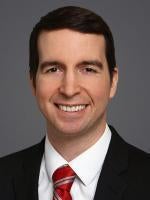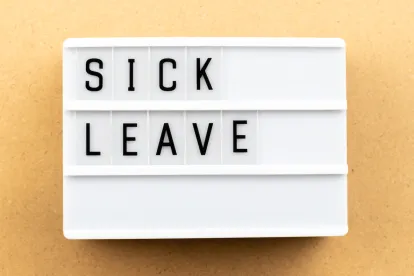On May 19, 2020, the Long Beach City Council unanimously approved a COVID-19 Paid Supplemental Sick Leave Ordinance. This ordinance, which goes into effect immediately, follows similar measures enacted by Los Angeles County, the City of Los Angeles, San Francisco, Oakland, and San Jose. As of May 19, 2020, employers must provide full-time employees performing work within the City of Long Beach with 80 hours of paid supplemental sick leave (PSSL), and part-time employees with PSSL “equal to the number of hours an [e]mployee works on average over a two (2) week period.”
Covered Employers
The ordinance applies to employers with 500 or more employees nationally that are not required to provide PSSL under the federal Families First Coronavirus Response Act (FFCRA).
Permitted Uses
To be entitled to PSSL, an employee must perform work “within the geographic boundaries of the City of Long Beach” and be unable to work (including telework) due to one or more of the following circumstances:
-
the employee is subject to a federal, state, or local quarantine or isolation order related to COVID-19, or is caring for someone who is quarantined or isolated due to COVID-19;
-
“[t]he employee is advised by a health-care provider to self-quarantine due to COVID-19 or is caring for someone” who has been advised by a health-care provider to self-quarantine due to COVID-19;
-
“[t]he employee experiences symptoms of COVID-19 and is seeking a medical diagnosis”; or
-
“[t]he employee is caring for a minor child because the child’s school, daycare, or childcare provider is closed or unavailable because of COVID-19 and the [e]mployee is unable to secure a reasonable alternative caregiver.”
The ordinance does not require that employees exhaust sick leave or other accrued leave before using PSSL hours.
PSSL Payment Limitations
Similar to the FFCRA, the Long Beach ordinance caps PSSL payments at $511 per day and $5,110 in the aggregate when the employee takes PSSL due to his or her own inability to work. Employers may apply a reduced cap of two-thirds of an employee’s regular rate of pay up to $200 per day and $2,000 in the aggregate for a purpose identified above that “relates to care for another person.”
For part-time employees, the ordinance calculates the daily number of hours paid to an employee receiving PSSL based on the average number of hours the employee worked per day, during the six months immediately preceding May 19, 2020. For example, if an employee worked an average of four hours per day during the six months preceding the ordinance, the employee will receive only four hours of PSSL each day the employee is unable to work. Employees with less than six months of employment may receive daily PSSL hours “based on the average hours the [e]mployer expected the [e]mployee to work per day at time of hire.”
The ordinance also states that “employee[s] [are] not entitled, under any circumstances, to be paid for unused [PSSL],” including when an employee’s employment ends.
Employer Prohibitions
The ordinance places several restrictions on covered employers, including the following:
-
Employers may not change their leave policies, except to grant additional leave, until the ordinance’s expiration.
-
Employers may continue to require employees “to follow reasonable notice procedures in order to use [PSSL], but only when the need for [PSSL] is foreseeable.”
-
Employers may not “require an [e]mployee to find a replacement as a condition of approving [PSSL].”
-
Although employers may ask an employee to identify the reason for taking PSSL, they may not require that the employee provide a doctor’s note or other documentation.
The ordinance prohibits retaliation against employees for “requesting to use or actually using [PSSL].” In addition, employees may sue to enforce the ordinance’s provisions directly in court and seek actual and punitive damages, reinstatement, reasonable attorneys’ fees and costs, and equitable relief.
Exemptions
The ordinance does not allow PSSL for employees who can work remotely and “are healthy enough to do so.” Additionally, health care providers, emergency responders, government agencies, and employers that already provide a minimum of 160 days of paid leave annually are exempt from providing PSSL.
Collective Bargaining Agreements
The ordinance’s requirements are non-waivable except through collective bargaining agreements that include COVID-19 related sick leave provisions and were in place on the effective date of the ordinance. In the event that a “collective bargaining agreement expires or is otherwise open for renegotiation” after the ordinance’s effective date, the agreement must explicitly waive PSSL benefits.
Expiration
The ordinance does not set a specific sunset date. Instead, it requires the city manager to update the city council and mayor every 90 days on the status of the “[c]ity’s recovery from the health and economic impacts of the COVID-19 pandemic.” Based on the city manager’s reports, the city council will determine a sunset date for the ordinance.





 />i
/>i
